
The Standard Goldendoodle—a charismatic blend of the Golden Retriever’s heartwarming loyalty and the Poodle’s sharp intellect—has stolen the spotlight as one of today’s most sought-after hybrid breeds. Whether you’re drawn to their therapy-dog potential, low-shedding coats, or their knack for turning strangers into instant friends, discover why the Standard Goldendoodle might just be the perfect furry addition to your life.
| Factor | Key Takeaways |
|---|---|
| Breed Origin | Hybrid mix of Golden Retriever (friendly) + Poodle (smart, hypoallergenic). Developed in the 20th century for adaptable family pets. |
| Lifespan | 10–15 years (up to 16 with proper care). Depends on genetics, diet, exercise, and vet checkups. |
| Size | 20–26 inches tall, 50–90 lbs. Largest Goldendoodle variant; sturdy, athletic build. |
| Temperament | Friendly, affectionate, calm. Great with kids, seniors, and other pets. Natural therapy/service dogs. |
| Coat Types | 3 Types: Curly (Poodle-like, low-shedding), Wavy (mix), Straight (Retriever-like, sheds more). |
| Shedding | Low to moderate. Not fully hypoallergenic (dander may trigger allergies). Requires weekly brushing. |
| Colors | Wide range: cream, gold, red, chocolate, black, merle, parti, phantom. Avoid double merle (health risks). |
| Health Concerns | Hip dysplasia, ear infections, allergies, eye issues (PRA). Regular vet visits prevent/treat issues. |
| Exercise Needs | 30–60 mins/day. Loves swimming, fetch, puzzles, and mental challenges. "A tired Goldendoodle is a happy Goldendoodle!" |
| Grooming | Brush 3x/week. Professional grooming every 6–8 weeks. Trim nails, clean ears, and dental care. |
| Training | Highly trainable (eager to please). Use positive reinforcement. Needs early socialization. |
| Cost | $1,500–$3,000. Higher for rare colors/patterns. Includes health checks, vaccinations. |
| Ideal For | Families, allergy sufferers (mild), active owners, first-time dog parents. |
Table of Contents
ToggleIntroductions
The Goldendoodle is popular because it mixes the smartness of a Poodle with the friendliness of a Golden Retriever, creating a fun, easy-to-love dog. These dogs were first bred on purpose to combine the best qualities of both breeds, like being clever and loyal. According to the American Kennel Club (AKC), their friendly nature makes them great for therapy work and helping people feel calm. Goldendoodles form strong bonds with families and stay calm even in busy situations, which is why they’re trusted as support pets. Their strong, athletic build lets them move smoothly and stay active, almost like they’re dancing when they walk.

History
The Goldendoodle is a mix of a Golden Retriever and a Poodle. Breeders started creating this crossbreed in the 20th century to combine the Golden Retriever’s friendly personality with the Poodle’s smarts and hypoallergenic coat (a trait that causes fewer allergies). According to the American Kennel Club (AKC), Goldendoodles were designed to be the perfect family pet: adaptable, loving, and easy to care for. Their low-shedding fur and sweet nature made them hugely popular in North America, not just as pets but as valued members of households.
Goldendoodles are also great at adapting to different roles. They’re not just playful companions—they’re also used as therapy dogs and service animals. The AKC notes that their natural ability to bond with humans makes them ideal for jobs like calming people in hospitals or helping those with disabilities. This mix of affection and usefulness is why so many families and individuals choose Goldendoodles to bring joy into their lives.
Lifespan and Vitality
Goldendoodles often live long lives, sometimes up to 16 years, thanks to their happy and playful nature—a hallmark of Standard Goldendoodle Characteristics. Their lifespan usually ranges from 10 to 15 years and depends on the genes they inherit, how well they’re cared for, and how loved they feel. According to the American Veterinary Medical Association (AVMA), regular vet checkups and preventive care—like vaccinations and dental cleanings—help Goldendoodles stay healthy and live longer. Keeping them active, feeding them good food, and giving them lots of attention also play a big role in their happiness and longevity.
There are several elements which when implemented properly will extend the lifespan of your Goldendoodle.
Read more About: Why own a Goldendoodle puppy?
The combination of physical and mental wellness requires routine exercise.
Their diet should be tailored to meet their particular nutritional requirements.
Their safe loving homes help them stay young spirited like children.
Proper attention to energy levels and affection benefits their health.
The established strategies will create many happy years for both you and your Goldendoodle.
Appearance
Coat Features and Variety
The Goldendoodle variety presents various coat textures including straight as well as wavy and curly types. The various coat categories of the Goldendoodle possess distinctive facial furnishings with soft textures that improve the breed’s look. These coats demonstrate hypoallergenic properties which benefit households suffering from allergies.
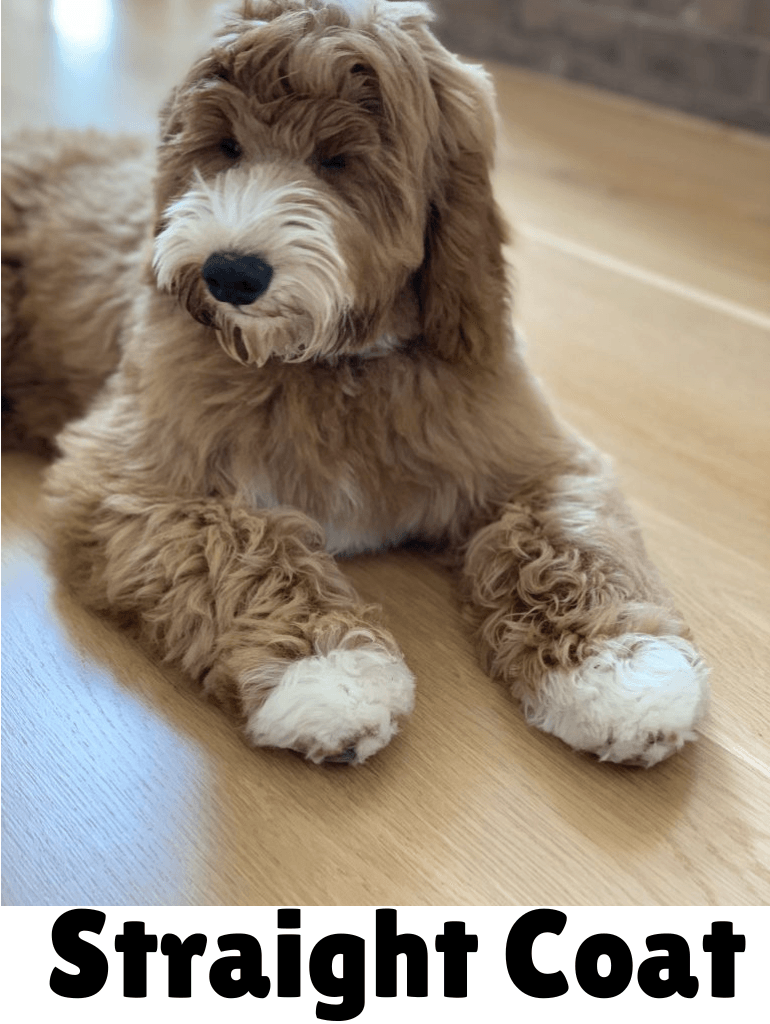
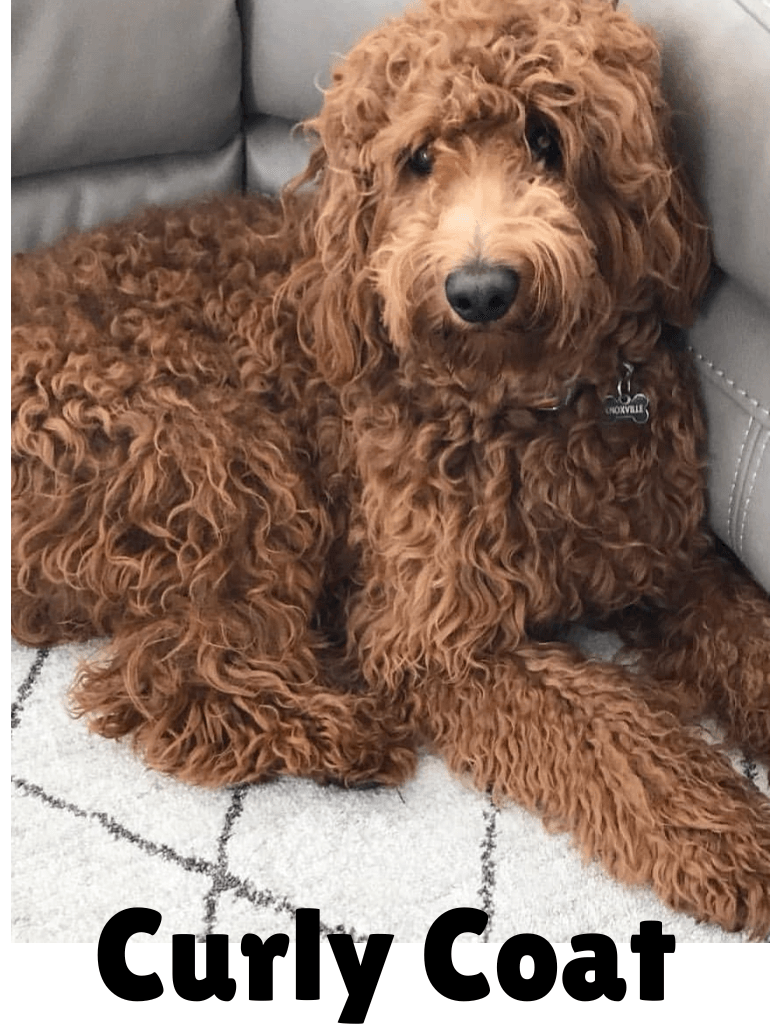
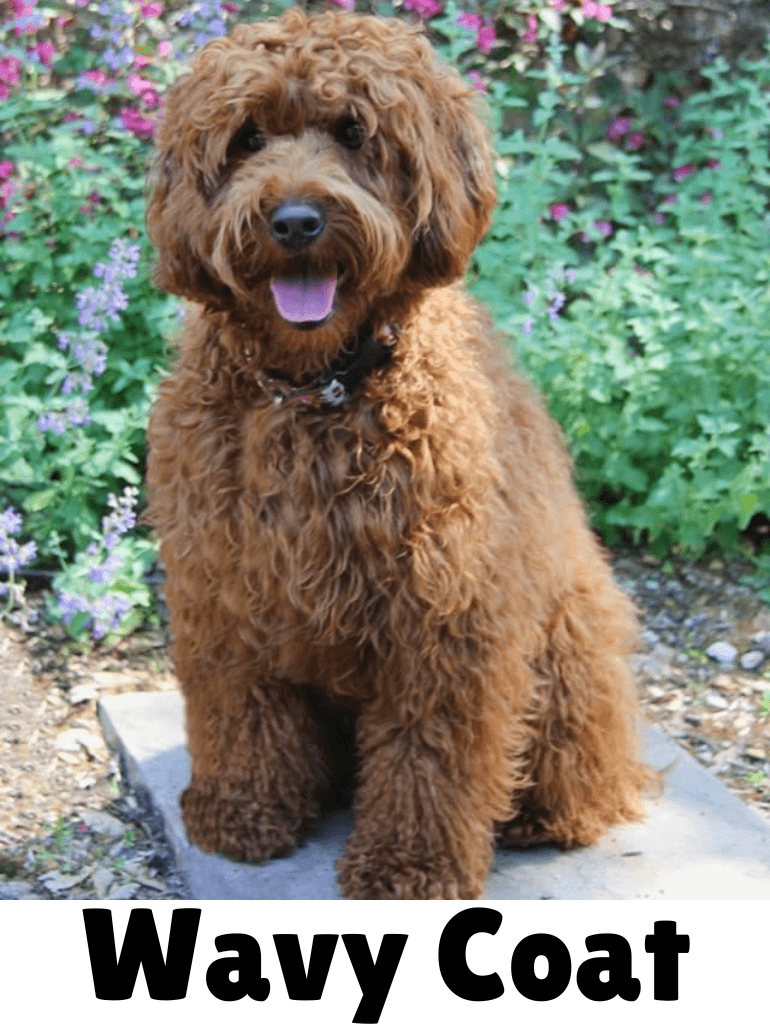
- Their coat type resembles Poodle fur patterns while keeping both allergic reactions and shedding to a minimum.
- The wavy coat option harmonizes the appearance between Poodle and Golden Retriever coat types.
- The straight coat mirrors Golden Retriever fur but needs grooming to control shedding since it appears infrequently.
A selected breed must feature no furnishings and it must neither have hypoallergenic properties nor shed while being bred only when undesirable traits distribution is required in the line. Understanding grooming requirements and personal living needs determines the selection process for an appropriate Goldendoodle coat type.
Shedding: A Low-Maintenance Advantage
Goldendoodles are famous for shedding very little or not at all, making them a good choice for people with allergies. However, the Goldendoodle Association of North America (GANA) notes that no dog is 100% hypoallergenic, even if they don’t shed much. Their curly or wavy coats need regular brushing and grooming to stay healthy and reduce loose hair.
Sarah Miller, a Goldendoodle owner for eight years, says: “Brushing my dog weekly keeps her coat clean and cuts down on shedding. Plus, it’s bonding time—she loves the attention!” Grooming isn’t just about looks—it also keeps your dog happy. While Goldendoodles are great for allergy sufferers, experts recommend spending time with one before adopting to make sure you don’t react to their dander.
A well-groomed Goldendoodle’s coat shines and feels soft, showing they’re healthy and loved. Simple care like baths, brushing, and vet visits helps them live their best life.
Stunning Color Variations
Because of its attractive coat combination with beautiful colorations the Goldendoodle ranks among the most popular breeds today. Different dog combinations create exclusive color patterns which address the preferences of many owners seeking rare characteristics in their pets.
- The various Goldendoodle colors have expanded from white to cream followed by gold and red while extending further to brown and gray and finally black for a wide range of choices that attract potential owners.
- Each Goldendoodle possesses distinct pattern combinations including phantom and brindle together with merle and parti which makes all dogs truly remarkable.
- Their coat receives its appearance from parental genetic contributions which demonstrate the different features of the breed.
- Most Goldendoodle colorations and patterns are normal except for double merles and extreme white coats which have exclusion criteria because these genetic combinations can decrease hearing capacity and create health problems.


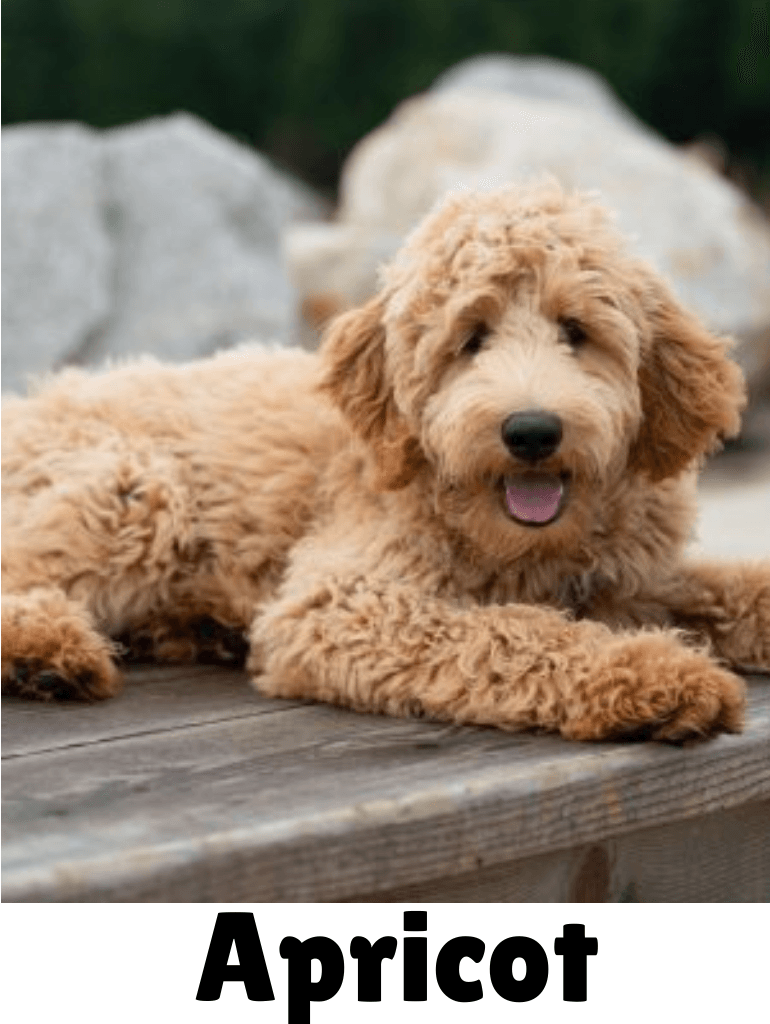
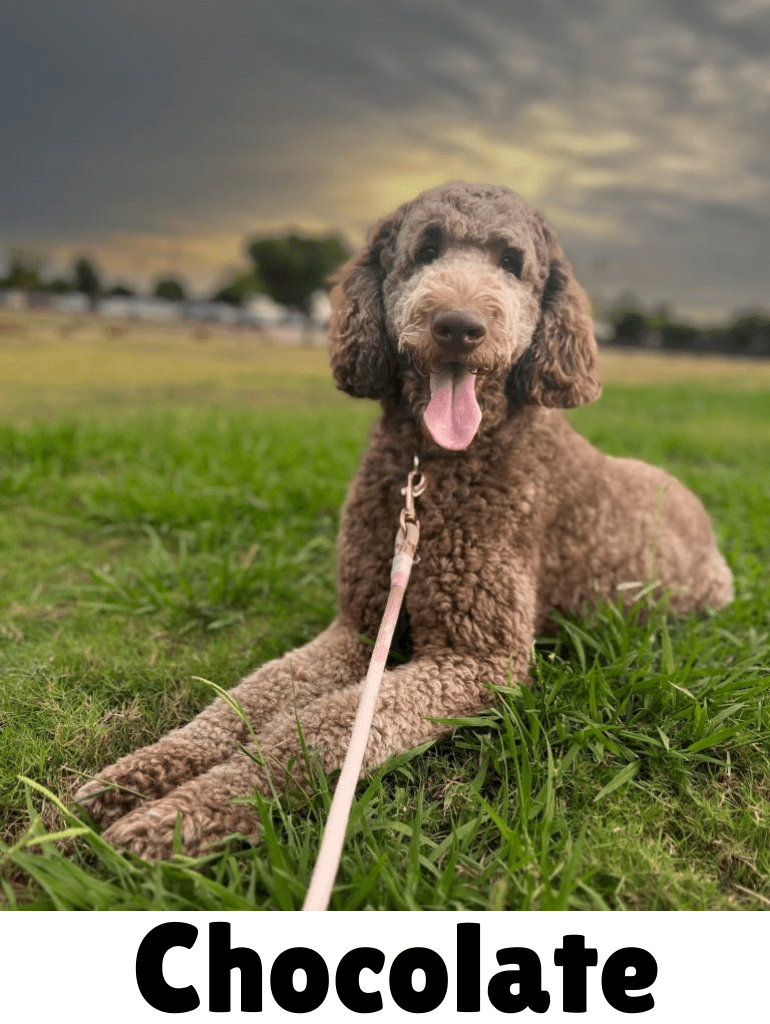
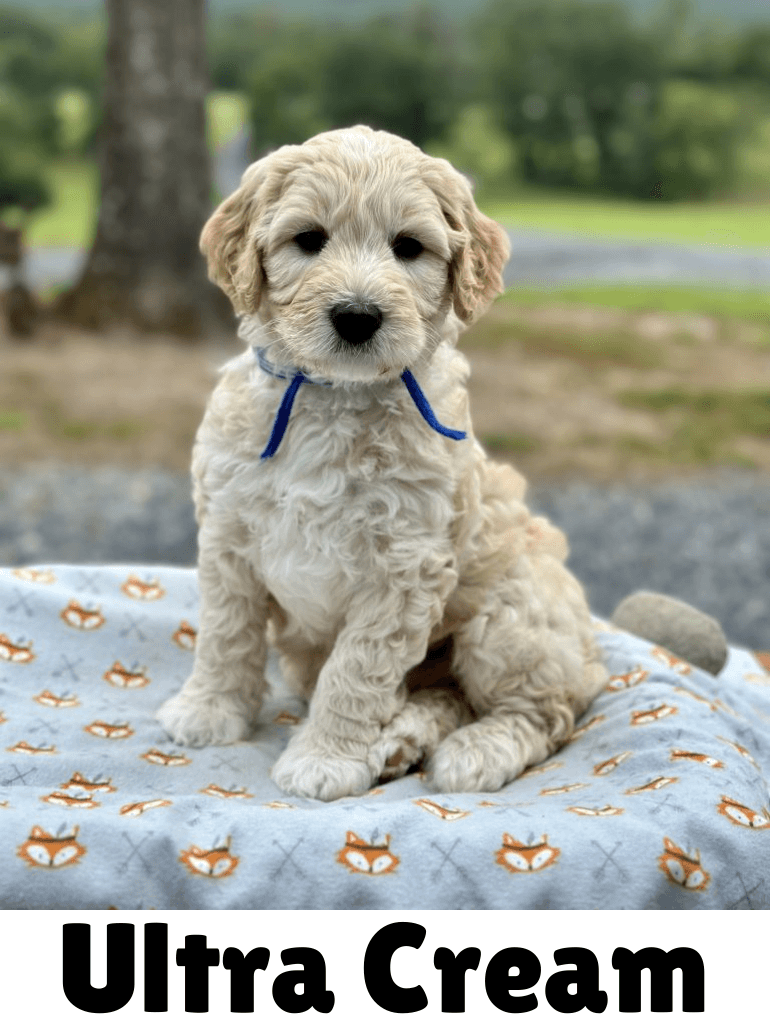
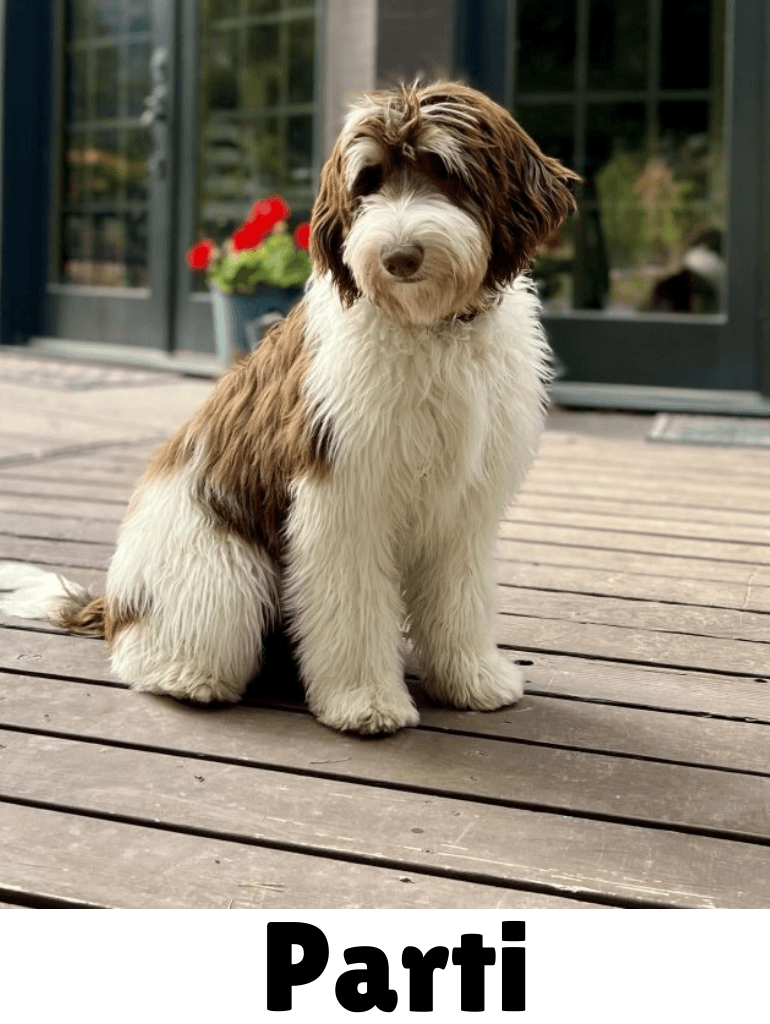
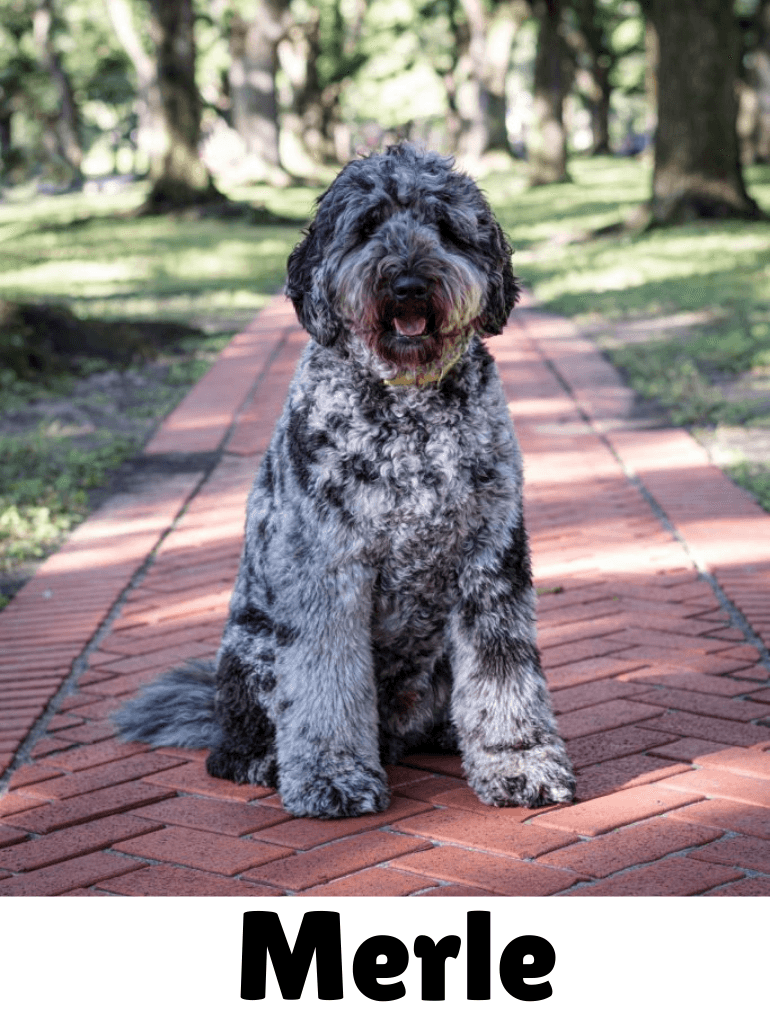
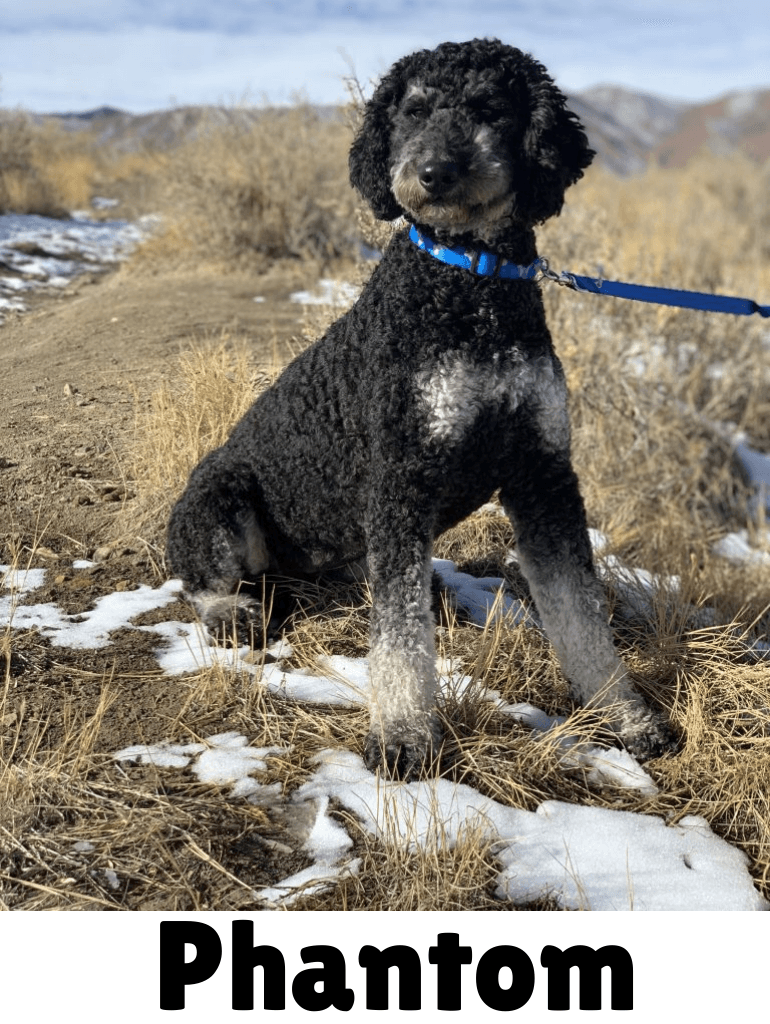
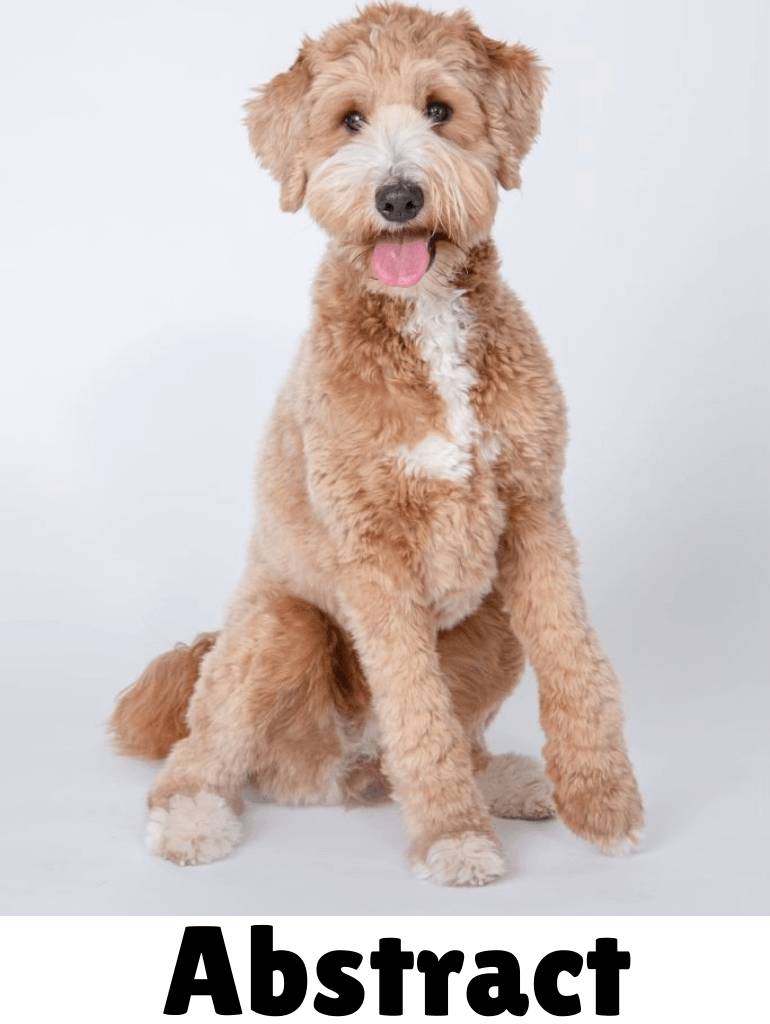
Size and Build
- The Standard Goldendoodle is the largest size in this breed family, ideal for owners who love big, affectionate dogs, while the Mini Goldendoodle puppy and Teacup Goldendoodle offer tiny, cuddly options for smaller living spaces.
- Standard Poodles crossed with Golden Retriever dogs lead to hybrid creatures that deliver the top qualities from both parents including cleverness together with devotedness combined with affable traits.
- The big frame of these dogs needs a large outdoor space to exercise but their peaceful nature drives them to nap extensively after each day of activities.
- This dog breed brings endless love and companionship while also being friendly toward children because they have an affectionate nature.
- You can enjoy these dogs both for outdoor activities and simple relaxation with family on relaxed afternoons because of their sturdy frame and medium to large size.
- Find the perfect Goldendoodle sizes according to your wish.
| Feature | Details |
|---|---|
| Height | 20–26 inches tall at the shoulder (about the height of a small coffee table). |
| Weight | 50–90 pounds (roughly the weight of a 10-year-old child to a small adult). |
Temperament
Goldendoodles are known for being friendly and loving, making them great family pets. They bond deeply with their owners and need lots of attention to stay happy. For example, Sarah, a Goldendoodle owner for six years, says: “My dog, Max, is so gentle with my kids and even calms my elderly mom when she’s stressed. He’s like a furry therapist!” These dogs get along well with everyone—kids, seniors, and people with disabilities—as long as they’re socialized early.
Like Labrador Retrievers, Goldendoodles adapt easily to different lifestyles, whether it’s playing at home or working as therapy dogs. They’re naturally calm and confident, rarely acting shy or hyper if trained properly. With patience and care, Goldendoodles become loyal companions who love making people smile.
Social Behavior
The Goldendoodle excels at being friendly toward all pets since their nature is to show kind willingness toward animals and dogs and cats. Younger Goldendoodles who experience contact with multiple settings and creatures and diverse individuals become mature and interactive mature dogs. Their love for positive social connection and playful personality suits them well as family pets. Proper socialization during young development trains dogs to handle various settings in life as they build meaningful connections with human and non-human companions.
Keeping Your Goldendoodle Active and Engaged

Goldendoodles love water, and swimming is a fun way to bond with them while making great memories. Jake, who owns a 3-year-old Standard Goldendoodle named Luna, says: “Luna goes crazy for the lake! She’ll fetch sticks in the water for hours, and it tires her out way better than a walk.” Daily walks, games of fetch, and interactive play keep these dogs physically fit and mentally sharp, stopping boredom before it starts.
Goldendoodles need both running and brain games. Puzzle toys or hide-and-seek with treats work wonders—they reduce restless energy and keep their smart minds busy. Thanks to their mix of smarts and playfulness, they learn tricks quickly and love trying new challenges. Mixing up activities (like hiking one day and training drills the next) keeps them healthy and deepens your bond.
As Jake adds, “A tired Goldendoodle is a happy Goldendoodle. If we skip her morning run, she’ll chew shoes or dig holes—she needs that energy out!” Keeping them active with fun, varied routines ensures they live their best, healthiest life.
Read more about: Goldendoodles are smartest dog breeds
Exercise Routines by Age
Puppies (8 weeks–1 year):
5-minute walks per month of age (e.g., 15 mins at 3 months).
Mental games: Snuffle mats, treat puzzles.
Adults (1–8 years):
45–60 mins/day: Swimming, fetch, agility training.
Pro Tip: Rotate toys weekly to prevent boredom.
Seniors (8+ years):
20–30 mins/day: Gentle walks, hydrotherapy.
Mental stimulation: Scent games, obedience refreshers.
Health Concerns

Health issues usually affect Goldendoodles only due to inheritable disorders that come from their parent breeds. These are the health problems to which owners should pay attention:
- The joint has a condition called hip dysplasia which produces pain effects along with movement complications.
- The parent breeds of Goldendoodles can transmit hereditary disabilities such as eye and heart related issues.
- Profuse allergies may produce both skin discomforts and bothersome itchiness.
- Ear infections occur because their ears hang loosely which creates a trap for moisture.
- The eye disorder Progressive retinal atrophy (PRA) causes vision deterioration which advances throughout the lifespan of affected dogs.
Patients can reduce risks and promote their health through routine veterinary exams coupled with proper nutrition and daily activities.
Ideal Nutrition for Standard Goldendoodles
Your Goldendoodle’s health and energy depend on feeding them the right food for their size, age, and activity level. Standard Goldendoodles need balanced meals packed with nutrients because they’re always on the go. Dr. Emily Carter, a veterinarian with 12 years of experience, says: “Goldendoodles thrive on high-quality protein and healthy fats. Avoid overfeeding—measure portions carefully to prevent obesity.” Picking food that fits your dog’s needs keeps them active and their mind sharp. I’ve found that changing their diet as they grow (puppy to adult formulas) helps avoid tummy issues or weight gain.
To keep your dog at a healthy weight, stick to regular meal times and avoid too many treats. Dr. Carter adds, “Even a little extra food each day can lead to joint problems later. Ask your vet for a feeding plan tailored to your dog.” My own Goldendoodle stays fit thanks to yearly vet checkups and a strict food schedule.
Grooming Needs of Standard Goldendoodles
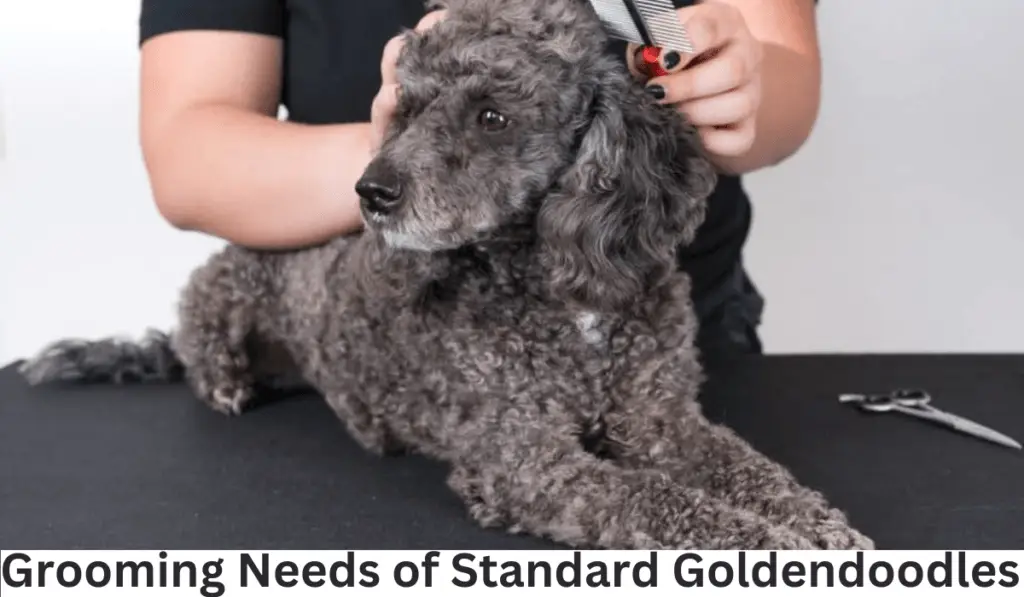
Standard Goldendoodles possess one-of-a-kind coats which form into several styles from straight to curly types. Standard Goldendoodles need regular grooming sessions since their coat type requires dedicated care to remain free of mats and in good health. The maintenance demands of dogs mostly depend on their coat type during grooming sessions. The grooming needs of dogs with curly coats demand additional frequent care since their curly fur becomes tangled easily. Professional groomers usually provide services to Goldendoodles every 6-8 weeks in order to keep their coats tidy while cleaning their ears and trimming their nails.
Breaking out a brush at home helps owners combat shedding while stopping tangles from developing until they next visit the professional groomer. Regular grooming sessions strengthen your bond with the dog simultaneously making the process easier. Through routine grooming approaches that consider each dog’s coat type, owners have discovered methods to minimize both pet-related and owner-related anxiety. Your Goldendoodle deserves your attention which will preserve both its charming appearance and total fitness condition.
Coat Care Toolkit
Must-Have Products:
Slicker Brush: Perfect for curly/wavy coats (try Chris Christensen Big G Slicker).
Detangling Spray: The Stuff for Dogs prevents mats.
Nail Grinder: Less stressful than clippers (e.g., Dremel PawControl).
Seasonal Shedding Hack: Use an undercoat rake (like Furminator) during spring/fall.
Training Tips for Your Standard Goldendoodle
Both the Poodle’s and Retriever’s familial lines have bestowed upon the Goldendoodle its exceptional intelligence which manifests as mental acumen. These dogs naturally wish to satisfy others which turns them into enthusiastic learners that learn commands easily while forming deep bonds with their owners. The training success depends on using positive reinforcement methods which include rewards with treats along with praise and playtime. Making regular sessions during the first training periods helps establish trust while teaching desirable conduct. Mental exercise keeps Goldendoodles swept up while they gladly accomplish complicated tasks and intellectual activities with pleasure.
The lack of proper engagement will lead to unwanted behaviors like digging or chewing and time-filling behaviors which the authorities find intolerable. These issues can be resolved through numerous stimulation activities and proper exercise design alongside physical opportunities. Their tolerant temperament makes these dogs optimal for new canine owners because they receive training instructions with patience. Through mental stimulation combined with physical exercises you will develop a strong and contented dog which remains well-behaved regardless of location.
Training Cheat Sheet
Teach “Leave It” in 3 Steps:
Hold a treat in a closed fist. Let your dog sniff. Say “Leave it.”
When they stop licking/biting, reward with a different treat from your other hand.
Repeat daily, increasing distractions (e.g., food on the floor).
Common Challenges & Fixes:
Separation Anxiety: Use crate training + leave calming music on.
Leash Pulling: Stop walking when they pull; resume when leash loosens.
How much do standard goldendoodles cost?
A standard Goldendoodle normally costs between $1,500 and $3,000 with costs depending on the breeder’s credibility and location combined with the puppy’s family heritage. Standard goldendoodle puppies which possess exceptional pedigree or unique coat colorations typically command prices at the higher end of this price range. The total expense reflects the breeder’s dedication to health examinations as well as vaccinations and continued care for their pups.
Lifetime Cost Breakdown
| Expense | Annual Estimate | Notes |
|---|---|---|
| Food | $600–$1,200 | High-quality kibble or raw diet. |
| Grooming | $500–$1,000 | Every 6–8 weeks + at-home tools. |
| Vet Care | $300–$800 | Vaccines, flea/tick prevention, emergencies. |
| Total (Yearly) | $1,400–$3,000 | Budget for unexpected costs (e.g., allergies). |
Where to buy standard goldendoodles?
Your search for a standard Goldendoodle puppy should begin at reputable breeding locations which emphasize both healthy genetics and favorable temperament. Health clearances must be requested before finalizing the purchase of a puppy while seeing the puppy firsthand or virtually and confirming a clean and loving living environment. Watching for available puppies at both rescue organizations and adoption centers presents fine opportunities for pet acquisition.
Ethical Breeder Checklist
Don’t Get Scammed! Red Flags to Avoid:
🚩 No Health Testing: Reputable breeders test parents for hip dysplasia (OFA/PennHIP), PRA (CERF), and heart conditions. Ask for proof.
🚩 Puppies Always Available: Ethical breeders have waitlists. Avoid “always in stock” litters (common in puppy mills).
🚩 No Home Visits: Breeders should welcome in-person/virtual visits to meet puppies and parents.
Green Flags ✅:
Breeders affiliated with GANA (Goldendoodle Association of North America).
Provide a health guarantee (at least 1 year).
Adoption Resources
Rescue Organizations:
Pro Tip: Adopted adult Goldendoodles often come pre-trained!
Conclusion
Standard Goldendoodles truly blend the best of both worlds: the Poodle’s sharp mind and the Golden Retriever’s big heart. Their hypoallergenic coats and adaptable nature make them a top pick for families, allergy sufferers, and even first-time dog owners like I once was.
As someone who’s shared my home with a Standard Goldendoodle for years, I can say they’re more than pets—they’re family. My dog, Sunny, has been my shadow through busy days and quiet nights, always ready to play fetch or snuggle after a long walk. His loyalty and goofy antics remind me daily why this breed is so special.
Yes, they need regular grooming, exercise, and quality food to thrive, but the reward is endless love and a companion who adapts to your life seamlessly. If you’re looking for a dog that’ll make you laugh, keep you active, and love you unconditionally, the Standard Goldendoodle isn’t just a good choice—it’s a life-changing one. Trust me, I’ve lived it. 🐾
Frequently Asked Questions (FAQs)
1.How long do Goldendoodles usually live?
The lifespan of a Goldendoodle normally ranges from 10 to 13 years. The expected lifespan of Goldendoodles lasts between ten and thirteen years but it depends on size along with health factors and the quality of care they receive. Regular medical examinations along with proper nutrition ensure Goldendoodles can achieve complete life satisfaction and happiness.
2. Are Goldendoodles really hypoallergenic?
Not completely! The Poodle heritage decreases shedding amount in these dogs yet true hypoallergenic properties are impossible to achieve in any canine breed. The allergies of certain individuals may or may not be triggered although the extent of reaction is typically person-specific.
3. What’s with all the “F1” and “F1b” terms for Goldendoodles?
Good question! These terms explain the dog’s breeding history:
- F1 Goldendoodles: A 50/50 mix of a Poodle and a Golden Retriever.
- F1b Goldendoodles: 75% Poodle, 25% Golden Retriever (one parent is a Goldendoodle, the other a Poodle).
- Multigen Goldendoodles: Goldendoodles bred from two Goldendoodles, often for consistent traits like coat type.
4. What types of coats do Goldendoodles have, and how does it impact grooming?
Goldendoodles can have curly, wavy, or straight coats.
- Curly: Minimal shedding but needs frequent brushing to avoid tangles.
- Wavy: The “classic” Goldendoodle look—manageable but still needs regular brushing.
- Straight: Similar to a Golden Retriever, and tends to shed more.
5. Do Goldendoodles have any special dietary needs?
A few instances of the Goldendoodle breed may show sensitivities in response to ingesting chicken or grains. Each Goldendoodle requires a proper diet adjusted specifically to match their dimensions along with their lifestyle choices. Your Goldendoodle may react to food allergies or stomach issues by eating a specific allergen-free food or getting veterinary advice.
6. How much exercise does a Goldendoodle need?
Goldendoodles are pretty energetic! These dogs enjoy activities such as walking daily and playing as well as agility games during their free time. A general recommendation suggests that your Goldendoodle needs exercise between 30 and 60 minutes every day to remain fit and content.
7. Are Goldendoodles recognized by the AKC or other kennel clubs?
Nope. Since they’re a hybrid breed, they’re not officially recognized by the AKC. That said, their popularity makes up for it!
8. What are common health concerns in Goldendoodles?
Similar to all dog breeds the Goldendoodle has certain health conditions they might develop. The breed suffers from hip dysplasia as well as allergies and ear infections and sometimes experiences digestive problems. Consulting with a veterinarian on a regular basis helps to find health problems early on.
9. Are Goldendoodles good with kids and other pets?
Absolutely! Goldendoodles are social butterflies. They’re gentle, playful, and great with children. They usually get along well with other pets too, especially if they’re introduced early.
10. How much grooming does a Goldendoodle need?
Healthy tooth care requires regular brushing sessions which should be performed at least three times each week. Getting professional coat maintenance once every 6 to 8 weeks alongside the regular upkeep of their coat ensures their overall good health. It is essential to remember the importance of ear care as well as dental treatment when performing grooming.
11. How do I find a vet experienced with Goldendoodles?
Ask breeders for referrals or search the American Animal Hospital Association (AAHA) database.





Leave a Reply